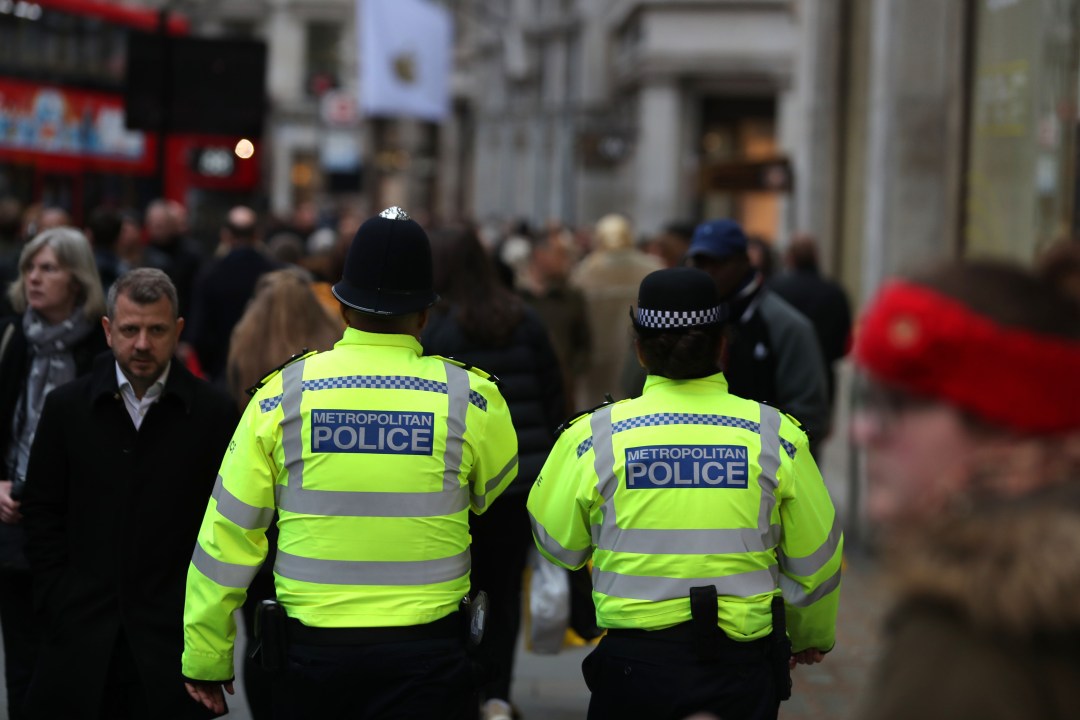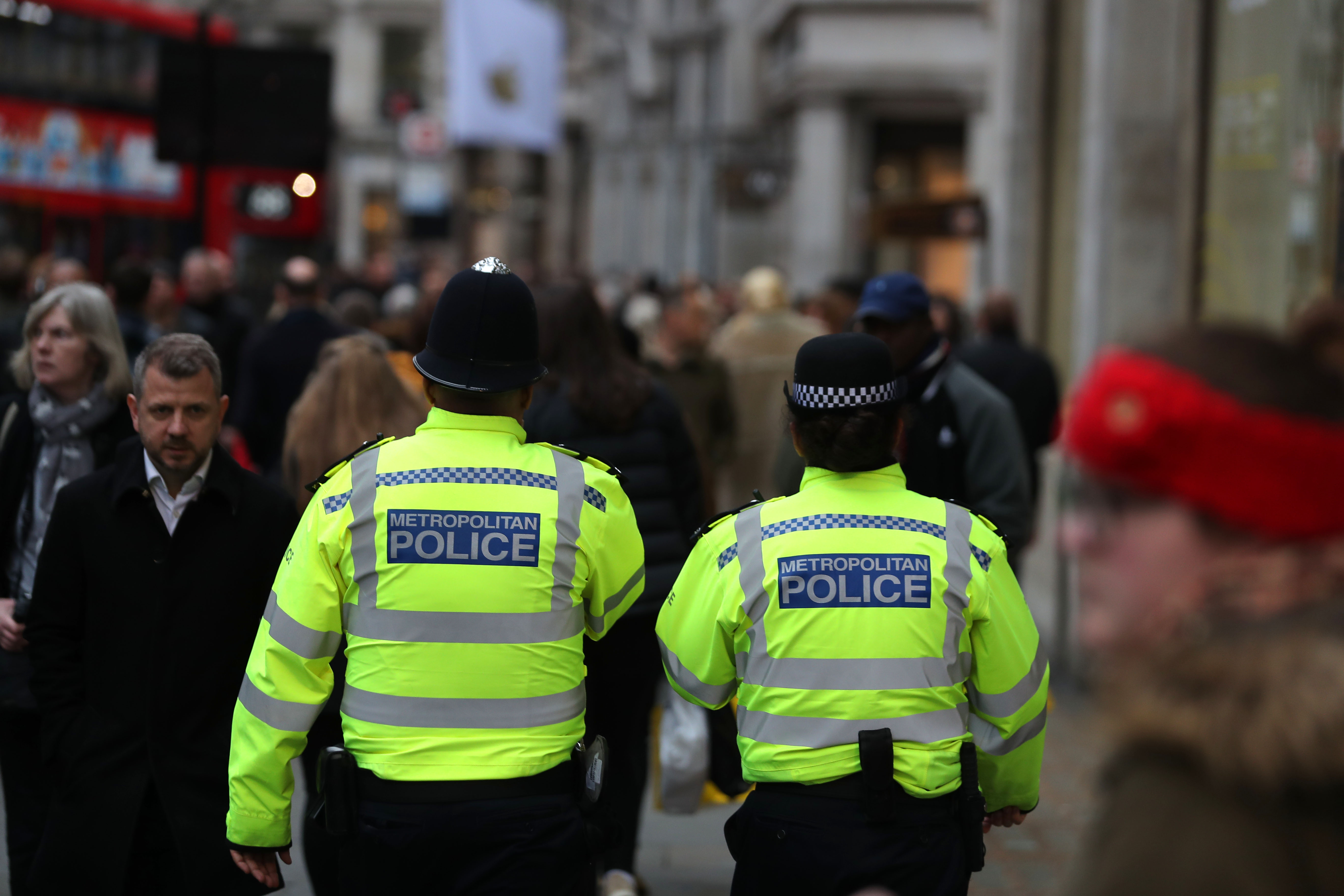Boris Johnson’s pledge to fund an extra 20,000 police officers was a serious sign of intent, a game-changing moment for policing and a huge boost for law and order on Britain’s streets. But how can these new officers quickly reverse the spike in knife and violent crime that has plagued Britain?
There are six pressing challenges that the new Home Secretary Priti Patel needs to address if she is to succeed in her strategy to crack down on crime: increasing crime levels, greater demands and reduced budgets for police; decline in neighbourhood officers; new national security threats; a disempowered police workforce and a policing model outpaced by technology.
It is clear that neighbourhood policing is where the vast bulk of the new resources need to be focused. People are worried about levels of crime on their streets and about a general decline in law and order. Yet cutbacks have resulted in police reverting to a reactive ‘emergency response’ based model. This means that officers now ‘respond, react and retreat’, often without resolving the underlying drivers of criminality.
Some crimes (drugs possession in particular) appear to have been de-criminalised in practice if not in law. Previously visible neighbourhood teams have shrunk or been disbanded, giving the impression that police have given up the streets to gangs, thieves and drug dealers.
Neighbourhood or community policing is an indispensable part of the fabric of modern operational policing delivery and the public know policing presence when they see it. Right now, they know they are being short-changed. I recommend a new re-invigorated Community Policing Strategy to re-kindle local police problem-solving teams across the country, with 16-18,000 of the new officers going to community policing.
There are also serious challenges that need addressing in the other two tiers of policing – the regional and national levels. The increase in county lines (moving and supplying drugs across communities, regions of the UK and internationally), the scale of dark web established child abuse (2.88m users world-wide) and a minimum of 181,000 serious and organised criminals in the UK are facts that demand attention and action.
We need to build on the success of the National Crime Agency (NCA) to create a network of national and regional capabilities to proactively tackle serious and organised crime, from drugs and firearm supply to fraud and child abuse. A sizeable number of the 20,000 police officers should be deployed to achieve this.
Much more must also be done to reduce the huge bureaucratic burden on police officers. This includes overbearing and suffocating scrutiny by police complaints bodies, such as the Independent Office for Police Conduct (IOPC) that has made police officers more cautious and risk-averse, eroding effective law enforcement.
Police officers have become reluctant to carry firearms, use stop and search powers or conduct chases of criminals for fear of the resulting reproach of the IOPC if something goes wrong. Policing is inherently risky, and officers need political and community support as well as the right laws and powers. It is ludicrous that while policing budgets have reduced substantially over the past eight years, the combined budget for the two police complaints oversight bodies, the IOPC and HM Inspectorate of Constabulary and Fire & Rescue Services (HMICFRS) has increased by 119 per cent. The IOPC should be merged into the HMICFRS to save money and reduce bureaucracy.
Policing also needs to keep abreast of technological changes, harnessing opportunities while complying with regulations and standards relating to retention and privacy. For instance, as mobile devices become increasingly complex with ever-expanding memory size, demands on digital media forensic services are likely to overwhelm capability. This then is an area that will require significant investment in research and development. Like the Department of Health, the Home Office should establish a Police Technology Innovation Hub in collaboration with private sector experts, venture capitalists and technologists who can help advocate change directly with the Home Secretary.
The recruitment of 20,000 additional police officers across England and Wales over the next three years will be logistically challenging, not least because of high employment levels and a recent decline in enquiries from potential applicants interested in joining the police. To deal with this, the Home Office should co-ordinate a national recruitment process in order to prevent 43 forces from each setting slightly different entry criteria. This will ensure that the 20,000 uplift in officers is rolled-out effectively and quickly. The Government also needs to fund a national advertising campaign to attract suitable applicants and offer new incentives to those considering joining the police.
The announcement of 20,000 more police officers is a big moment in the recent history of British policing. Their recruitment and deployment will, in time, make life harder for criminals who have been in the ascendency for too long. It will also restore the public’s trust in the government’s ability to keep them safe. But only if Boris Johnson’s Ministers use these new resources wisely.
Richard Walton is Senior Fellow at Policy Exchange and former Head of Counter-Terrorism Command at the Metropolitan Police. His paper ‘Rekindling British policing – A 10-Point Plan for Revival’, is published here







Comments